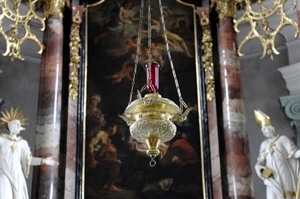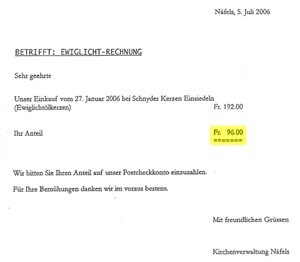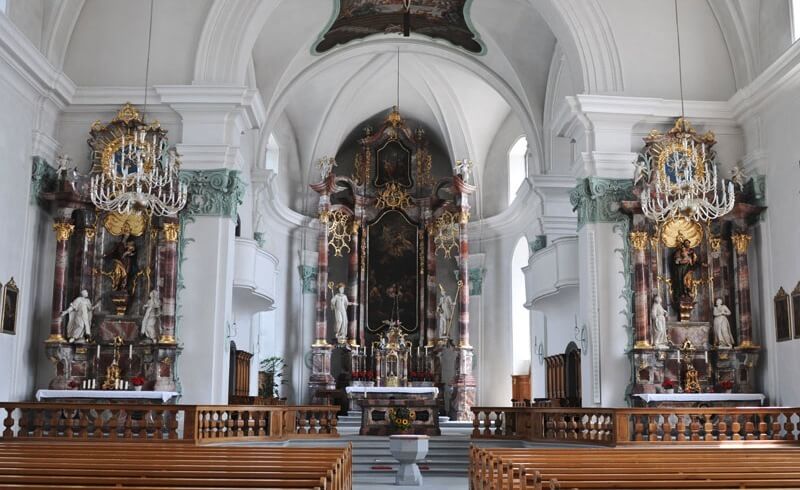The cantonal court of Glarus in eastern Switzerland has released a farmer from the obligation, dating back 655 years, to finance an “eternal lamp” in the Roman Catholic church in Näfels village. The debt stemmed from a 14th century murder.
In 1357, a certain Konrad Müller was accused of killing a man named Heinrich Stucki, as recorded in contemporary documents. To save his soul and to avoid vengeance from the family of his victim, he offered to maintain an eternal lamp in the church of Mollis “for eternity”.

During the Reformation, the eternal lamp was transferred to the church of St. Hilarius in Näfels. Over the centuries that followed, landowners honored the commitment (which amounted to 70 Swiss Francs per year) to pay for the nut oil – and later the candles – that lit the lamp.

The parish of Näfels then moved to enter this obligation into the land registry of the commune, yet the farmer still refused to comply. The church took legal action against the man but in its judgment of December 20th, 2012, the cantonal court decided in favor of the farmer, awarding costs against the parish.
"It was never about the money", the lawyer for the parish was quoted as saying in the NZZ Online newspaper, rather “a simple clearing up of the land registry”.
The court ruled that the customary law, valid at the time of the murder, was null and void at least since the reform of the mortgage system, which took place in the middle of the 19th century. Furthermore, there was no longer a particular link between the land and the eternal lamp.
(Pictures copyright by 20 Minuten/dwi, content provided by swissinfo.ch)





Add comment